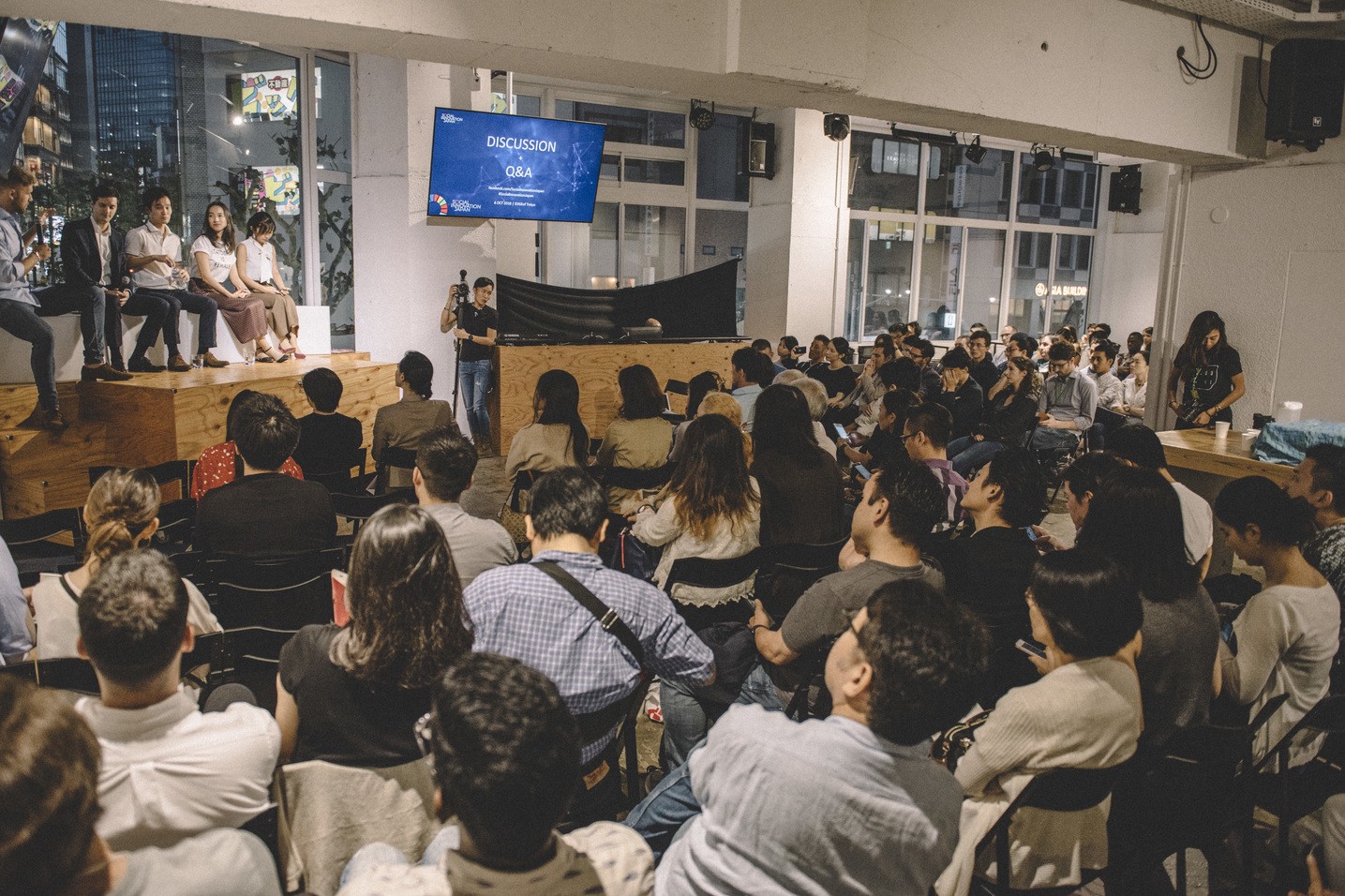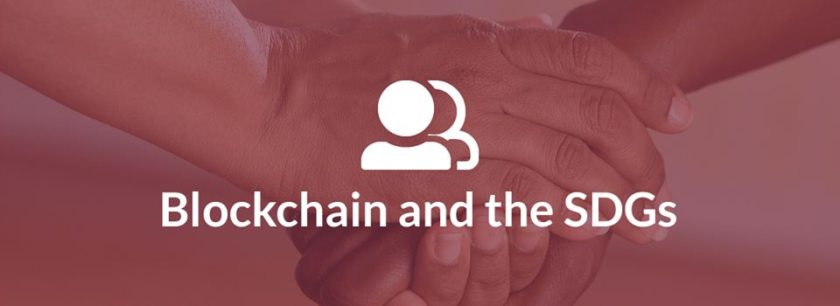cliBlockchain is most renowned as the underlying technology behind cryptocurrencies like Bitcoin.
And while cryptocurrencies are already disrupting financial systems and creating seismic shifts in our economies, there’s an important part of the story that’s missing from the mainstream narrative, especially in Japan.
And that is:
How can blockchain technology be leveraged to solve the world’s most pressing social and environmental problems?
And that’s exactly why we, Social Innovation Japan, organised Japan’s first-ever summit focused on Blockchain x Sustainable Development Goals (SDGs).

We brought together 150 people from different sectors, nationalities, and backgrounds on 6th October 2018 in Tokyo for the summit. It came at the tail end of Global Goals Week, where world leaders came together at the United Nations HQ to discuss how to tackle the world’s greatest problems, as embodied in the 17 U.N. Sustainable Development Goals, as well as progress to date in achieving these ambitious goals.
We invited 6 industry leaders to bring a wide range of perspectives, including representatives from corporate, startup, nonprofit, and government sectors.
Blockchain x World Food Programme (WFP)
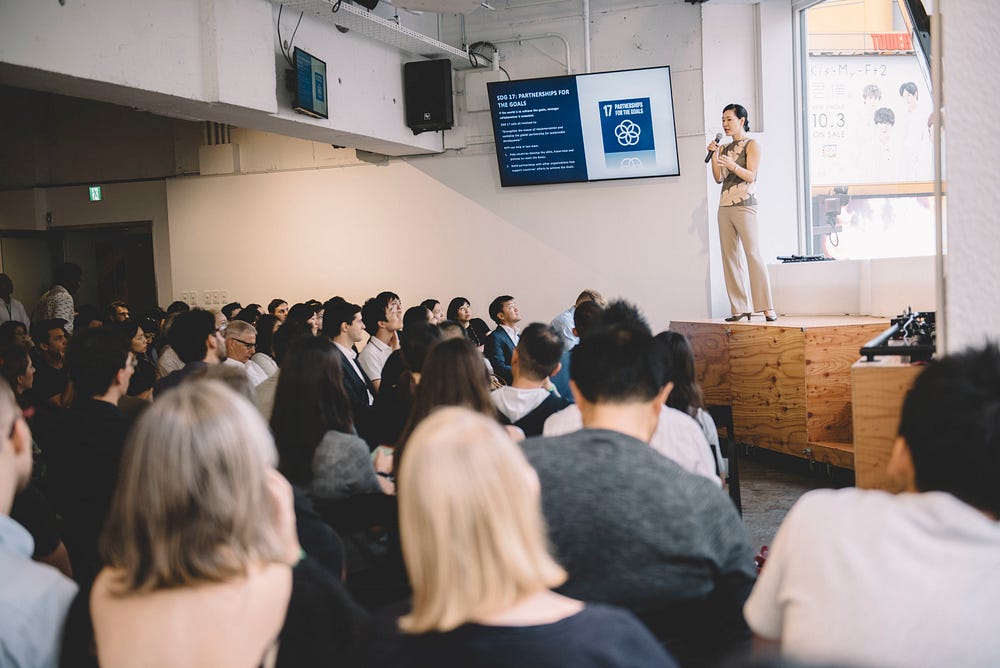
Kiyori Ueno from the World Food Programme (WFP) kicked off the Summit with a presentation about WFP, their mission, and introduced how the organisation is using blockchain to achieve their mission of ending world hunger.
One of the first major adopters in the humanitarian space, WFP is already leveraging blockchain technology in their cash distribution programs to assist Syrian refugees in Jordan.
Through their ‘Building Blocks’ project, WFP has enabled more than 100,000 people residing in camps to redeem assistance through the blockchain-based system. This system provides a full, in-house record of every transaction that occurs, ensuring greater security and privacy for the refugees, as well as a significant reduction in transaction fees for WFP (see this video to learn more).
Blockchain 101
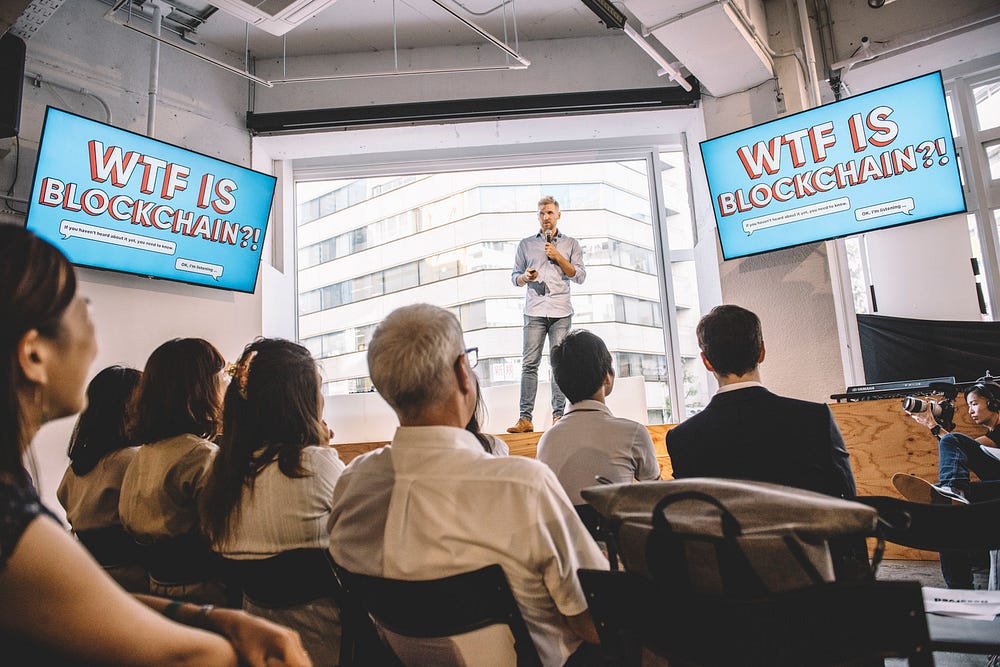
Following the opening remarks, Chris Rizanow, Director of Digital Asset Restructuring at Blockchain Industries Inc., provided a comprehensive overview of what blockchain is, and what it isn’t.
Chris covered the essentials: the definition of Distributed Ledger Technology (DLT), the inner workings of blockchain, smart contracts, private vs. public blockchain networks, and the rise of cryptocurrencies around the world.
After a light-hearted and engaging talk, participants were invited to take part in an on-the-spot quiz, helping to reinforce key points and ensure that all participants were on the same footing as we began the exploration of how blockchain can be used for social good.
Sustainable Development Goals & Applications of Blockchain
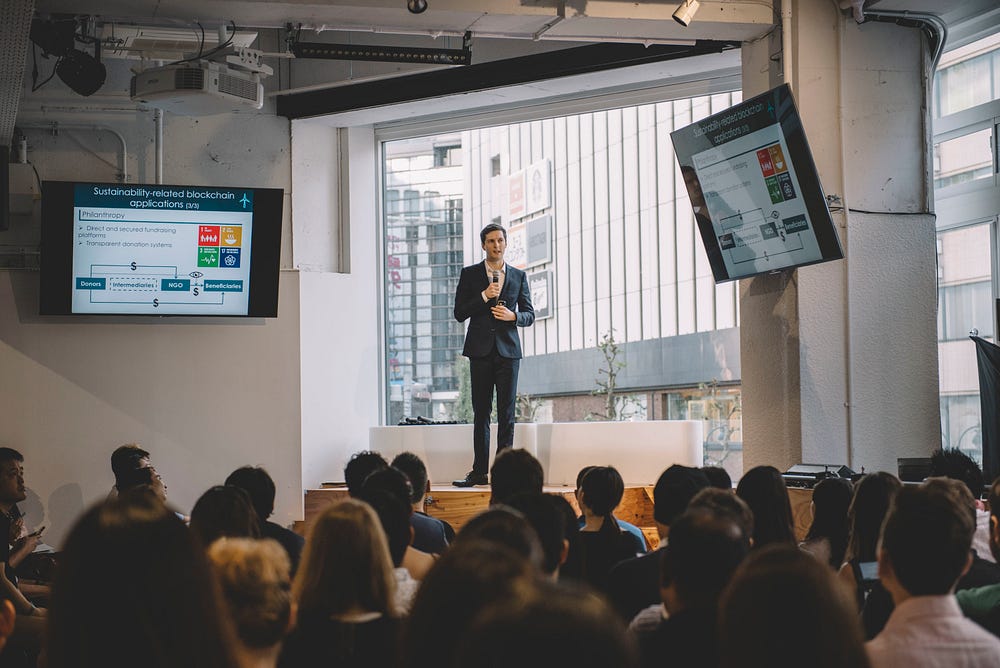
After Blockchain 101, it was time for Alexis R. Rocamora, Senior Sustainability Consultant at Ernst & Young Japan, to delve into what the Sustainable Development Goals are, why they matter, and real-life examples of how companies, nonprofits, and governments are using blockchain to push progress on the SDGs around the world.
Having conducted extensive research (and previously co-authored this report) on the topic, Alexis shared insights about organisations already leveraging blockchain technology for social good, including:
- Aid Financing: Disberse makes aid financing more transparent, effective and accountable. It enables the tracking of funds through the whole value chain, from original donor to final recipient.
- Environmental Protection: Ever heard of BitSeeds? It’s a digital currency that promotes rainforest conservation and tree-planting. In partnership with the Rainforest Foundation, it has pledged to plant and protect over 1 billion trees!
- Supply Chain Management: Provenance enables retailers and producers to open product data, track the journey of goods, and empower customers with access to knowledge about products’ supply chains, using blockchain and open data.
Cryptocurrency Donation Platform: Kizuna
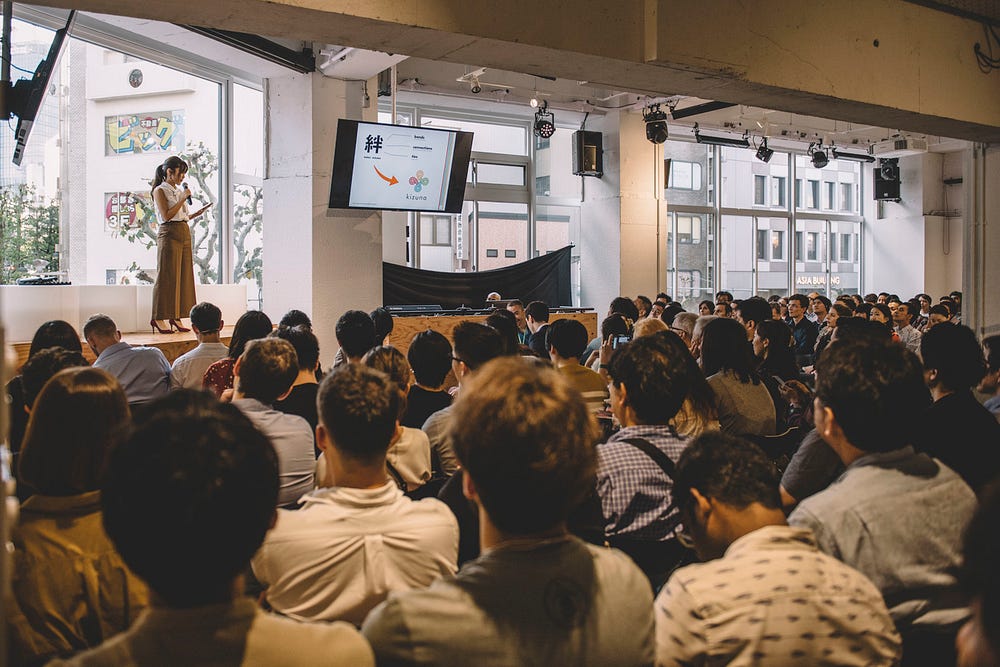
Mai Fujimoto, also known as “Miss Bitcoin”, introduced her pioneering cryptocurrency donation platform, Kizuna. The platform enables users to donate cryptocurrency directly to a nonprofit of their choice, while being assured that 100% of their donation will reach its intended recipient (no handling fees are charged).
The project raised 1.7 million Yen through a crowdfunding campaign at the start of 2016. Since then, it has helped to grow the crypto-philanthropy space as a whole by encouraging people to donate, as well as assisting nonprofits to set up systems to accept crypto donations. To date, Kizuna has raised the equivalent of tens of thousands of dollars for worthy causes around the world.
Government Applications of Blockchain
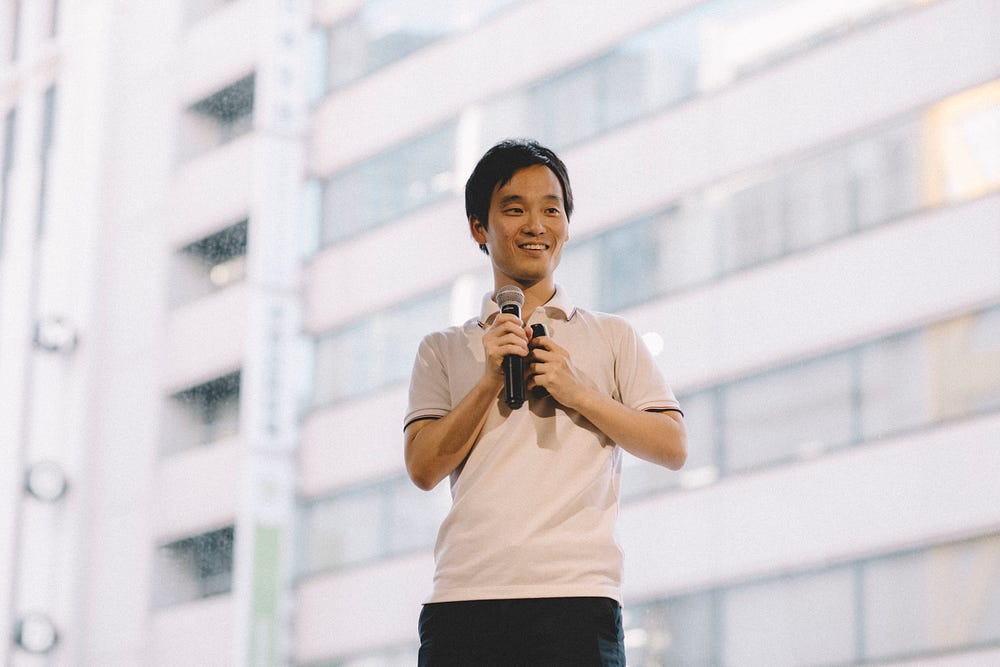
The latter part of the summit was kicked off by Kohei Kurihara, President of the Government Blockchain Association, Tokyo Chapter — a non-profit helping government to understand, implement and benefit from blockchain. He introduced examples of how the Japanese government and partners are planning to implement and already experimenting with blockchain:
- Voting: Tsukuba became the first city in Japan to deploy a digital, blockchain-enabled voting system in September 2018. The system allows voters to cast ballots via a computer after placing their “My Number” card on a card reader, and blockchain is used to prevent voting data from being falsified.
- Education: Sony developed a blockchain-powered system to manage educational transcripts, scores and other high-security data. The company aims to show that critical data in the education sector can be maintained and managed in a safe way, thanks to blockchain.
- Trade: Japan’s Ministry of Economy, Trade and Industry (METI) is working on a blockchain-based data sharing system for the trade industry. The system aims to digitize and enhance the process of logistics data sharing between trade entities, such as shipping companies, banks and insurance companies. This would replace the current costly and time-consuming processes that uses paper-based media or PDF files.
Global Trends & Opportunities

Eriko Suzuki (Partner at Fresco Capital) put everything into perspective, leveraging her extensive experience in the finance and social impact sectors. With all the buzz around crypto, its sometimes easy to forget that it has only existed for a tiny blip in human history (‘Satoshi Nakamoto’ posted this white paper in October 2008, leading to the birth of the Bitcoin era).
She reminded us that, while these are exciting times, there are still major questions surrounding the technology’s regulatory frameworks, governance structures, interoperability, and scalability. Eriko also discussed the rise of Initial Coin Offerings (ICOs), and introduced some unique blockchain-powered projects, including:
- Dada.Nyc: Dada channels collaborative art into a decentralized marketplace run by smart contracts, where artists have IP protection and collectors get proof of ownership.
- Kommerce: Through deployment of blockchain and data analysis, Kommerce empowers African businesses to access capital markets, and capital markets to safely and efficiently finance African businesses.
Eriko also highlighted that, given the recent emergence of blockchain and crypto, we are in an ideal position to collectively define the industry’s values and ethics. While much of the tech industry has been male-dominated, women and minorities’ engagement will help us to create an industry with values and opportunities that are more reflective of society as a whole.

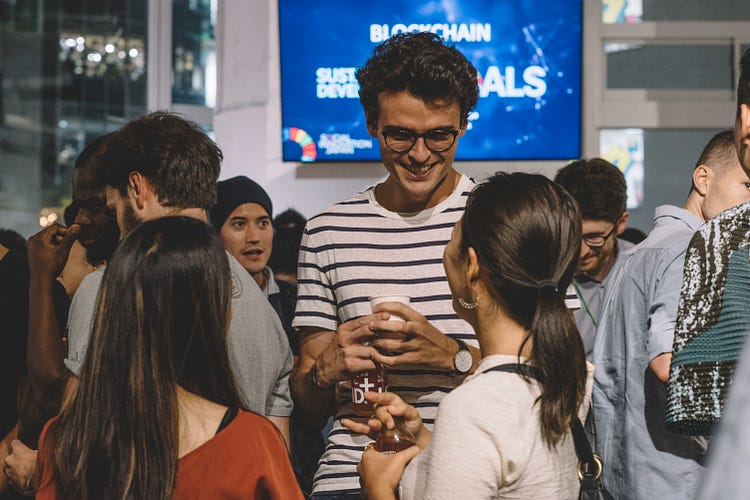
It’s clear that blockchain has enormous, game-changing potential that reaches far beyond the realm of finance.
People around the world are researching, experimenting with, and increasingly deploying the technology to address the big problems of our time, from the refugee crisis to climate change.
On one hand, we’ve seen the beginnings of action in Japan: from Tsukuba City using blockchain-enabled voting systems, to Mai Fujimoto’s Kizuna crypto donation platform.
On the other hand, Japan is the global leader in crypto trading and is a technological juggernaut. So, with all of its capital, know-how, and other resources, it seems that there is still ample room to do more.
As we begin to wrap our heads around the realms of possibility for blockchain, both positive and negative, Japan could become the world leader in not only crypto trading, but in using blockchain for social good.
Credit: medium.com
Written by: Robin Lewis


